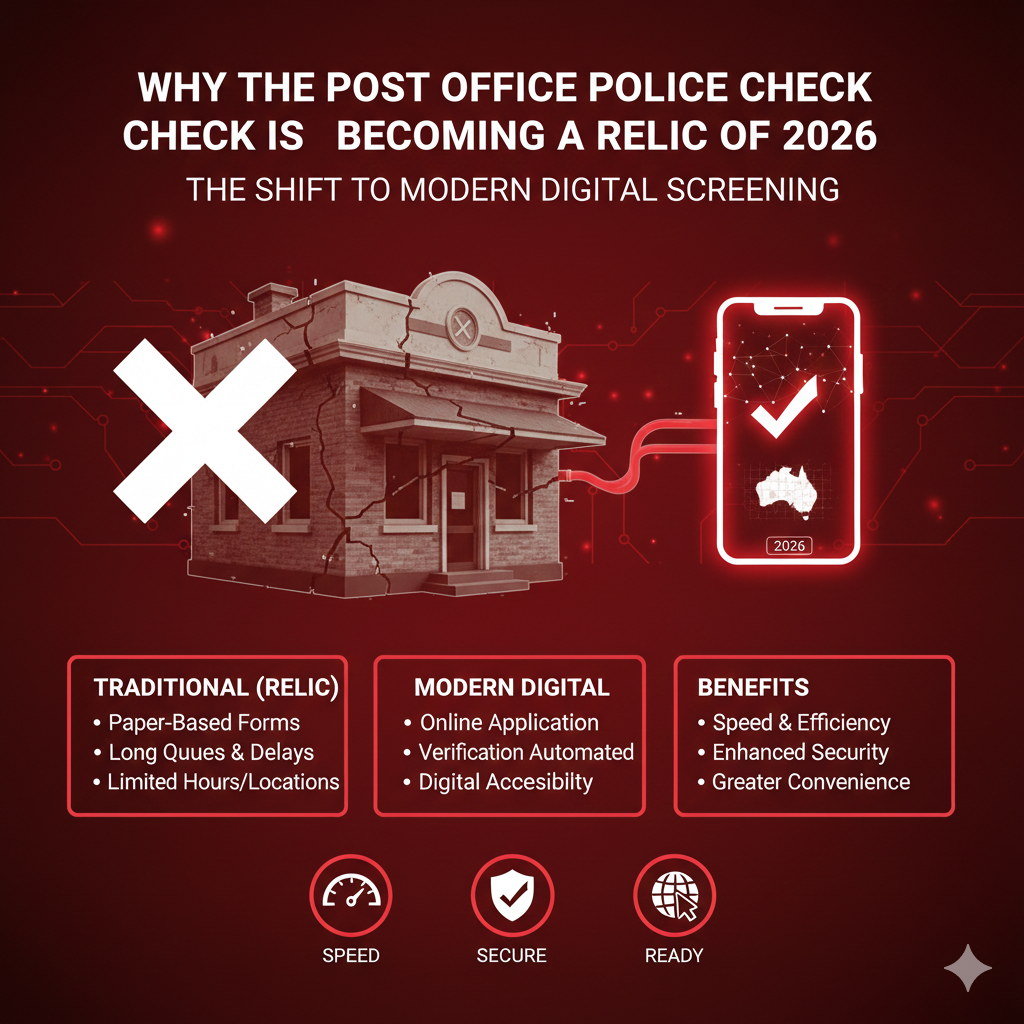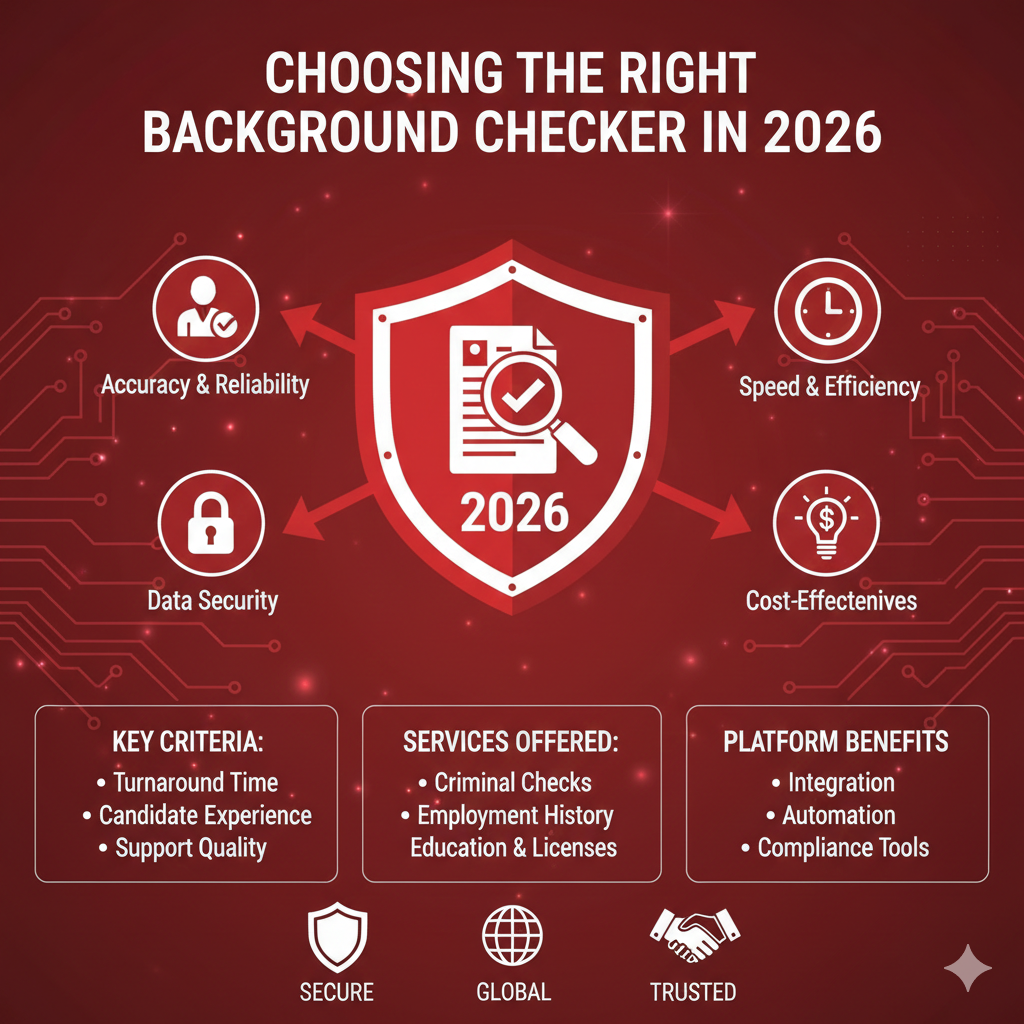In the world of Australian background screening, clarity and compliance are everything. When an employer, a government agency, or an overseas body asks you for an Australian police check, they are generally referring to the National Police Check (NPC). However, the exact body issuing this certificate, be it an ACIC-accredited provider like Rapid Screening or the Australian Federal Police (AFP), can make a critical difference.
The term AFP clearance police check refers specifically to the National Police Certificate issued directly by the Australian Federal Police. While the result contains the same core information as other Nationally Coordinated Criminal History Checks (NCCHCs), its issuer and accepted purpose are highly specific.
Understanding this distinction is vital to avoid application errors and costly delays, especially if you are applying for immigration, a Commonwealth job, or work overseas. This guide breaks down the essential differences and outlines exactly when you must choose the AFP clearance police check path.
The Australian Police Check Landscape: Two Paths to a National Check
The goal of every Australian criminal history check is the same: to provide a summary of an individual’s Disclosable Court Outcomes (DCOs) across all Australian states and territories. This process is managed at a national level through the Australian Criminal Intelligence Commission (ACIC).
What is the Standard Nationally Coordinated Criminal History Check (NCCHC)?
The Nationally Coordinated Criminal History Check (NCCHC) is the most common police check used for general employment, volunteering, and licensing purposes within Australia.
- Provider: ACIC-accredited agencies (like Rapid Screening) and some state/territory police forces.
- Access: Accredited bodies have direct, high-speed electronic access to the national ACIC checking system.
- Acceptance: Accepted by the vast majority of private employers, non-profits, and state-based licensing bodies.
- Key Advantage: Speed. Up to 70% of checks are returned instantly, and the remaining 30% are manually referred to police for vetting. Rapid Screening specialises in delivering these checks quickly and efficiently for general employment screening.
Defining the AFP Clearance Police Check (The AFP NPC)
An AFP clearance police check is simply the National Police Certificate issued specifically by the Australian Federal Police. While the core database searched is the same national index, the AFP is the mandated provider for checks intended for certain high-stakes and federally regulated purposes.
- Provider: Australian Federal Police (AFP) only.
- Purpose Specificity: Mandated for commonwealth purposes, certain international applications, and specific territories.
- Acceptance: Required when the recipient explicitly demands an AFP-issued certificate.
When is an AFP Clearance Police Check Mandatory?
If you are an employer or an individual needing an official criminal history report, the purpose of the check dictates which provider you must use. If your need falls into any of the following categories, you must apply directly through the AFP to obtain the specific AFP clearance police check.
1. Immigration and Visa Purposes (The Most Common Requirement)
The Department of Home Affairs (Immigration) requires an AFP clearance police check for anyone applying for Australian citizenship, permanent residency, or certain visas (partner, skilled, or temporary). This is the single largest driver for people requiring the AFP certificate.
2. Commonwealth Government Employment and Licensing
Any role related to the Commonwealth of Australia government, its agencies, or entities operating under Commonwealth legislation often mandates the AFP check. This includes:
- Employment in federal departments (e.g., Defence, Home Affairs, Treasury).
- Seeking certain security clearances.
- Roles requiring checks under specific Commonwealth acts.
3. Overseas Applications
For Australian citizens or residents seeking employment, volunteer work, or adoption overseas, the receiving international body frequently requires an AFP check because the AFP is the federal policing body recognised globally.
4. Australian Territories
Applicants who are residents of, or require the check for purposes within, the Australian Capital Territory (ACT) or the Jervis Bay Territory must use the AFP.
AFP Check vs. ACIC Check: A Comparative Table
While both documents are technically National Police Checks, their specific application and acceptance criteria differ significantly. This table illustrates the key differences to help you decide which AFP clearance police check path you need to follow.
| Feature | ACIC-Accredited Check (e.g., Rapid Screening) | Australian Federal Police (AFP) Check |
| Common Name | National Police Check (NPC) or NCCHC | AFP Clearance Police Check |
| Issuing Authority | ACIC-Accredited Provider | Australian Federal Police (AFP) |
| Primary Use | General employment, volunteer work, state/territory licenses | Mandatory for Visa/Immigration, Commonwealth employment, ACT residents, Overseas purposes. |
| Turnaround Time | Up to 70% instant | Generally within 48 hours for instant checks |
| Speed Advantage | Designed for maximum speed and bulk employer use. | Processing is often slightly slower due to the high volume of manual checks for immigration. |
| Cost | Varies by provider, often highly competitive for employer clients. | Fixed fee set by the AFP. |
The crucial takeaway is that for general employment in the private sector or for state/territory licensing in New South Wales, Victoria, Queensland, etc., the check provided by an ACIC accredited service like Rapid Screening is usually all that is required and is significantly faster. Only specific, federally-driven purposes require the AFP clearance police check.
The Importance of Accuracy When Applying for Your AFP Clearance Police Check
Whether you apply for the standard NCCHC or the specific AFP clearance police check, accuracy in your application is the single most important factor determining turnaround time.
Identification and Vetting
All police checks, regardless of the provider, require strict identity verification to a 100-point check standard. This ensures the check is run against the correct person. Inaccurate or incomplete ID submission will immediately halt the process and result in a manual review request.
Consent is Mandatory
You must provide explicit consent for the check to be conducted. No entity, private or federal can legally proceed with an AFP check or any other NCCHC without the applicant’s formal, signed permission. This protects the applicant’s privacy and rights under Australian law.
Choosing the Right Screening Partner
For employers managing a high volume of recruits who require the standard Nationally Coordinated Criminal History Check for general, non-Commonwealth employment, speed and efficiency are key. Rapid Screening’s ACIC accreditation means we use the same national database as the AFP but deliver the legally equivalent, required certificate rapidly through our dedicated online portal.
We understand that applicants needing an AFP clearance police check for immigration purposes cannot use our service for that specific goal, but we are here to support every other common employment screening need across Australia. For those specific Commonwealth requirements, applicants must apply directly to the AFP.
Conclusion
The term AFP clearance police check should serve as a signal: it indicates the necessity of using the Australian Federal Police to obtain your National Police Certificate, typically reserved for immigration, federal roles, or overseas applications.
For the vast majority of Australian employment and volunteer needs, a standard, efficient National Police Check from an ACIC-accredited provider like Rapid Screening is all you need. We provide the comprehensive criminal history information required to fulfil your due diligence and keep your workplace compliant and safe.
If you are certain your specific purpose does not require the mandatory AFP certificate, choosing an accredited service equivalent is the fastest way to get your staff cleared.
FAQs
Q) Why do some organisations insist on an AFP clearance police check?
Generally, they are either a Commonwealth entity or are adhering to a specific regulation (like immigration or overseas employment) where the AFP is the legislated issuing body.
Q) If I get a check from Rapid Screening, is the information different from an AFP check?
No. Both checks search the same central, national police database coordinated by ACIC. The difference lies solely in the issuing body and the specific legal purposes for which each certificate is accepted.
Q) How long does a standard National Police Check take through Rapid Screening?
For approximately 70% of applicants with no records or potential matches, the check is returned within minutes. The remainder require manual review by police, which typically takes 1 to 15 business days.
Q) Can Rapid Screening process an AFP clearance police check for visa purposes?
No. For Australian visa or immigration applications, you must apply directly to the Australian Federal Police, as they are the mandated authority for that specific purpose.afp clearance police check
{ “@context”: “https://schema.org”, “@type”: “Article”, “headline”: “Decoding the Differences: When You Need an AFP Clearance Police Check vs A Standard NPC”, “description”: “Learn when you must use an AFP clearance police check versus a standard Nationally Coordinated Criminal History Check (NCCHC). Understand differences, required purposes, and processing rules.”, “author”: { “@type”: “Organization”, “name”: “Rapid Screening” }, “publisher”: { “@type”: “Organization”, “name”: “Rapid Screening”, “logo”: { “@type”: “ImageObject”, “url”: “https://www.rapidscreening.com.au/logo.png” } }, “mainEntityOfPage”: { “@type”: “WebPage”, “url”: “https://www.example.com/afp-clearance-police-check-vs-standard-npc” }, “articleBody”: “Decoding the Differences: When You Need an AFP Clearance Police Check vs A Standard NPC … (full article body omitted for schema)” }



